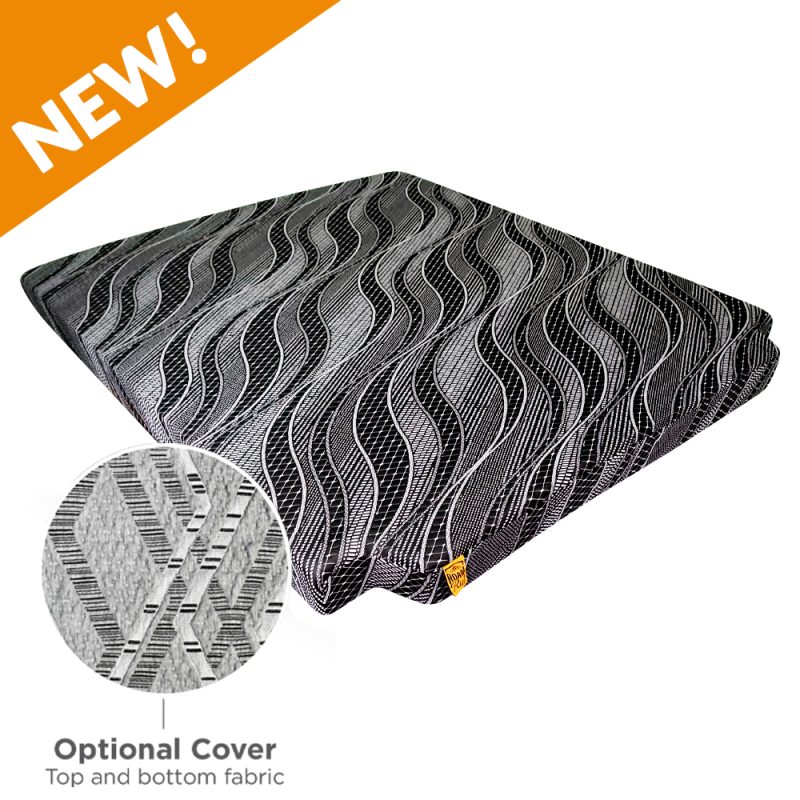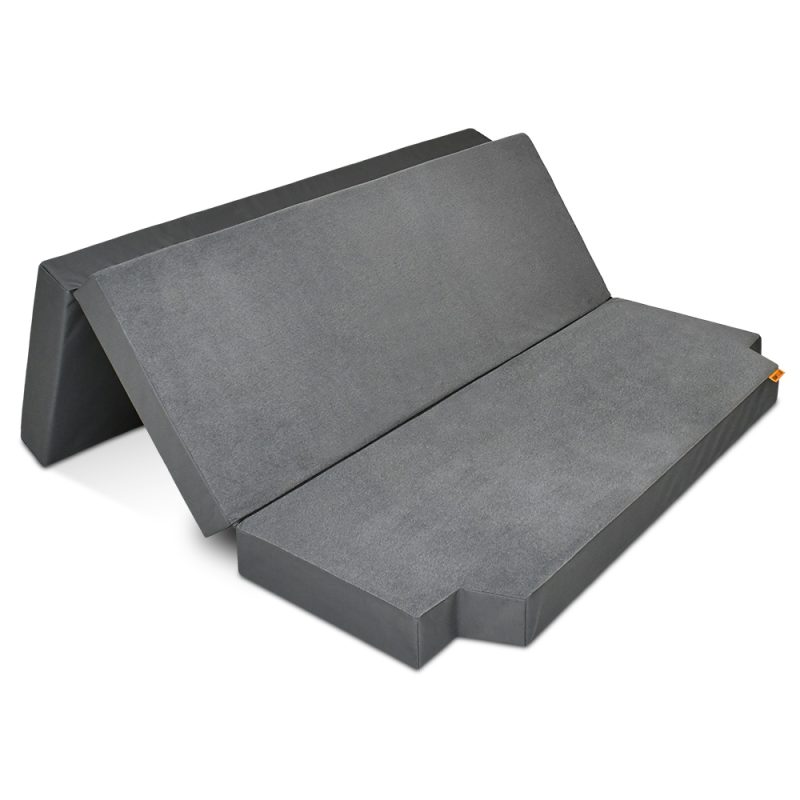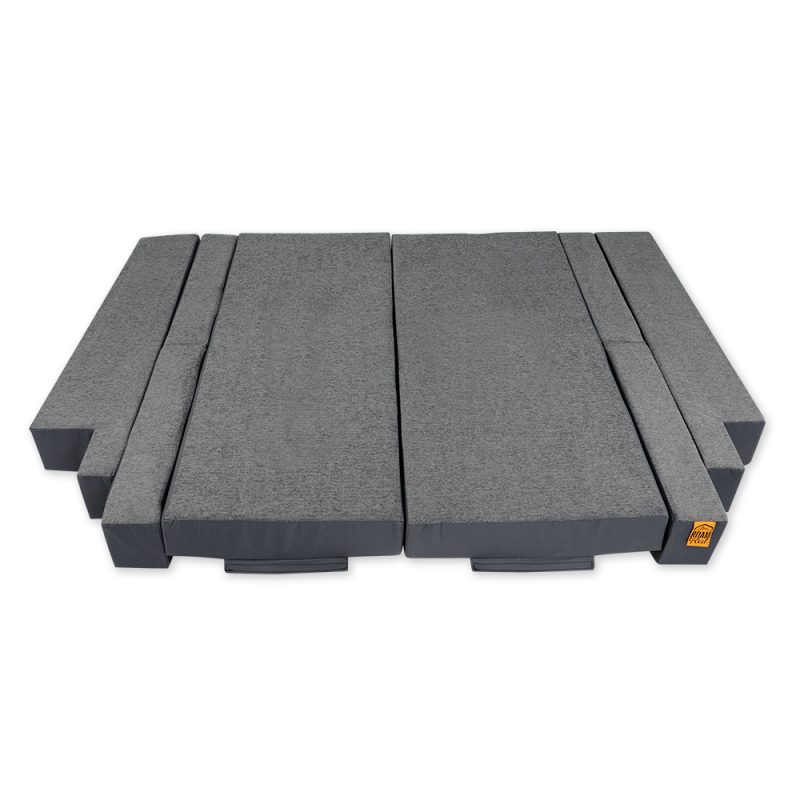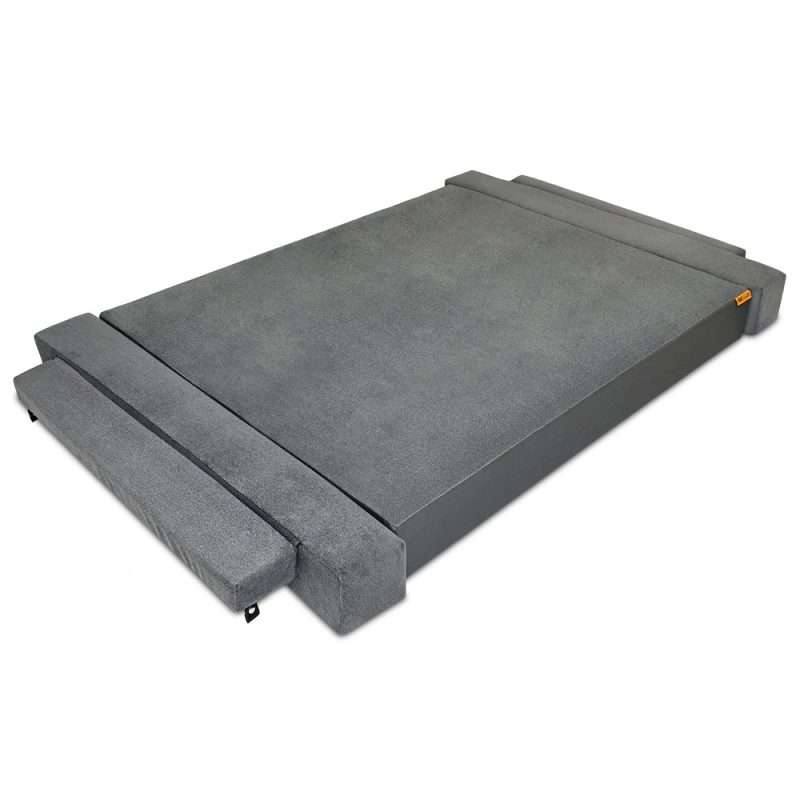News & Updates
How to Winterize Your RV or Camper Van
![How to Winterize Your Camper Van [Draft]](https://roamrest.com/wp-content/uploads/2022/12/pic1-white-van.jpg)
If you travel in your van often or full-time, there may be occasions when you decide to park your camper van and fly to a destination instead of driving. Often this scenario is during the holidays when you want to spend time with family without the hassle of driving in inclement weather or over a long distance. When this happens, how do you winterize your RV or camper van while you’re away?
Several things must be considered when you leave your camper van unattended. The main concern is ensuring your RV is safe from theft and other harm. Another is ensuring that the interior and exterior of your RV is protected from the elements.
We’ve put together a few tips on winterizing and storing your camper van during the holidays, regardless of how long you will be away.
10 Tips on Winterizing Your Campervan
If you plan to park your camper van during the winter in sub-freezing weather, there are a few things you can do to ensure the safety of your camper van. When considering how to winterize your camper van, some preparation may differ if you’re storing your camper van for a shorter or longer period of time.
1.
Rent instead of store
If you’ve never considered renting your camper van out, this could be a great opportunity to try it out! You can have someone else taking care of your van while you’re away and even make some money at the same time. There are a variety of reputable peer-to-peer van rental companies that cover things like legal documents, insurance, and background checks. The most well-known peer-to-peer van rental companies are GoCamp, Outdoorsy, Vancation, and RVshare.
2.
Drain and treat water tanks and lines
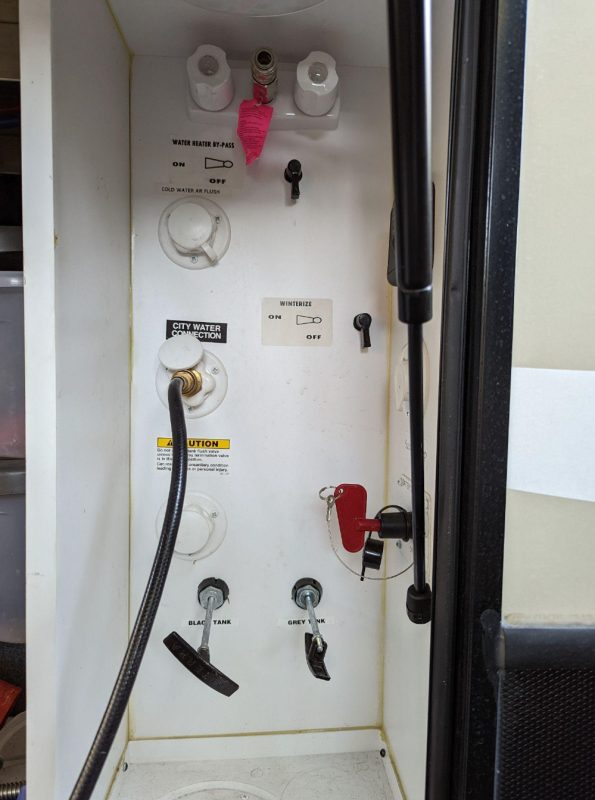
This seems obvious, but If you’re storing your camper van out in the elements, draining everything that can freeze is a must as you winterize your RV. Something as simple as a p-trap or your water pump can be damaged beyond repair if the slightest amount of water is still in them and freezes. Don’t forget to remove any bottles of lotion, shampoo, or cleaning products!
You can purchase an antifreeze solution specifically for winterizing your RV that is safe to run through all water lines in your camper van. Propylene glycol antifreeze is the safest option for you and the environment.
3.
Remove any food
Another obvious task is removing food from your camper van. Even non-perishable sealed food items should be removed when storing your van for any length of time. This includes canned food in case it freezes and even small items like tea bags. Rodents can smell the slightest scent of food and are even bolder about entering new spaces in winter months.
4.
Clean your camper van
Like when you go on vacation when living in a regular house, your camper van should be thoroughly cleaned before storing it. Winterizing your camper van is not only a great opportunity for a deep clean, but it’s so wonderful to come back to a sparkling clean home after being away for some time.
This also goes for the exterior, especially if you’re storing your camper van longer term.
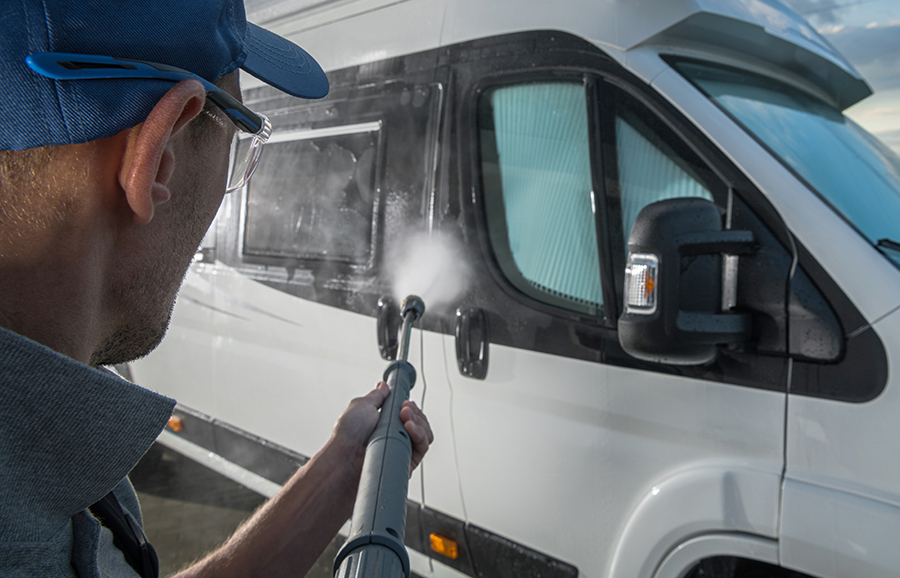
Wash your camper van for winter storage
5.
Store bedding and clothing in vacuum-sealed bags
If there’s any chance condensation might build in your camper van during storage, you may want to invest in vacuum-seal bags to store your bedding and clothing. This will prevent moisture from building up in the fabric and ensure you come home to fresh, clean clothing and bedding.
6.
Cover your camper van mattress
The same goes for your mattress. Suppose there is concern about moisture in your van or rodents getting inside. In that case, consider getting a mattress cover made for moving to protect your mattress from getting damaged or mildewy. Another preventative measure is using DampRid to reduce the chance of moisture damage to your mattress and cushions.
After spending time with family over the holidays, you’ll want to return to your camper van and rest and recuperate without worrying about a stinky mattress.

7.
Disconnect batteries
Keep your batteries healthy by disconnecting them when storing your camper van. Don’t forget to disconnect the actual van battery, as most camper vans have connections from the van battery to the “house” batteries to charge your battery bank while driving.
8.
Empty propane lines
If you use propane inside the van, it’s a good safety precaution to drain any propane lines and ensure your propane tank is turned completely off. If your tank is stored inside, you may want to disconnect and remove the propane tank completely and store the tank elsewhere when winterizing your RV.
9.
Park in a safe location
Be aware of if your camper van is safe where it will be parked. This goes for safety from break-ins, tampering, and debris that may hit and damage the van while parked. That big oak tree might seem harmless, but in a powerful windstorm, branches or the tree itself can damage your camper van if it falls. Parking under a tree or bush may also increase the risk of getting sap drippings on your van. Scrubbing sap off solar panels is a challenging task.
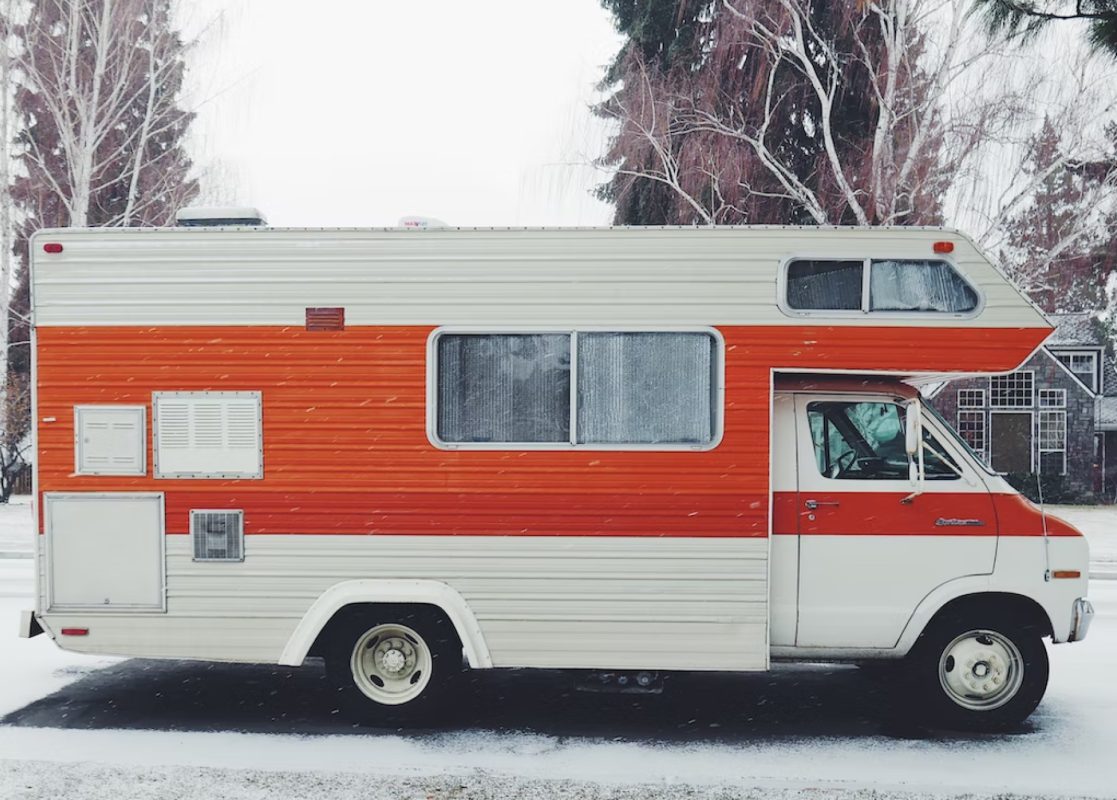
Camper Parked for Winter
10.
Check up
And finally, if you have a friend that can check up on your stored camper van, it can be reassuring to know that someone is keeping an eye on it. If you’re storing your van on a friend’s property and they have security cameras, see if you can park your camper van close enough to the cameras so your van can be monitored.
4 Tips on How to Winterize Your RV Long-Term
If you’re planning on winterizing your RV long-term (more than a few weeks), there are some additional precautions that you might consider taking. In addition to the tips outlined above, the following are good practices if storing your camper van long-term in sub-freezing weather.
1.
Store your camper van in a heated storage unit
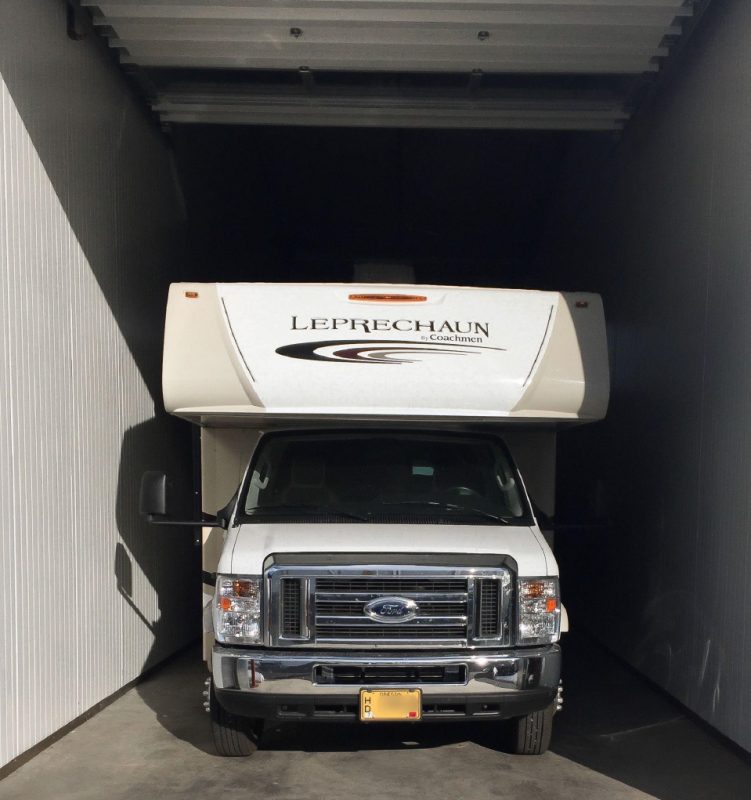
If you have the budget to do so, storing your camper van in a heated, enclosed storage unit is the safest, easiest option. However, not all storage facilities offer heated units, and if your trip isn’t planned well ahead of time, you may have difficulty finding a heated unit available.
2.
Change your oil
If you’re storing your camper van for an extended period of time, changing the oil will help keep your engine in tip-top shape. Leaving old dirty oil in a vehicle while sitting can cause issues when you drive the vehicle again, as sediment that settles in the oil can gum up the engine.
3.
Cover with a winter camper cover
For longer-term storage, covering your camper van with a tarp or winter camper cover is a great extra precautionary measure to take. Remember to protect the tires if you choose to cover your camper van. Either have a camper tarp large enough to cover your vehicle to the ground, or you can get covers made specifically for tires.
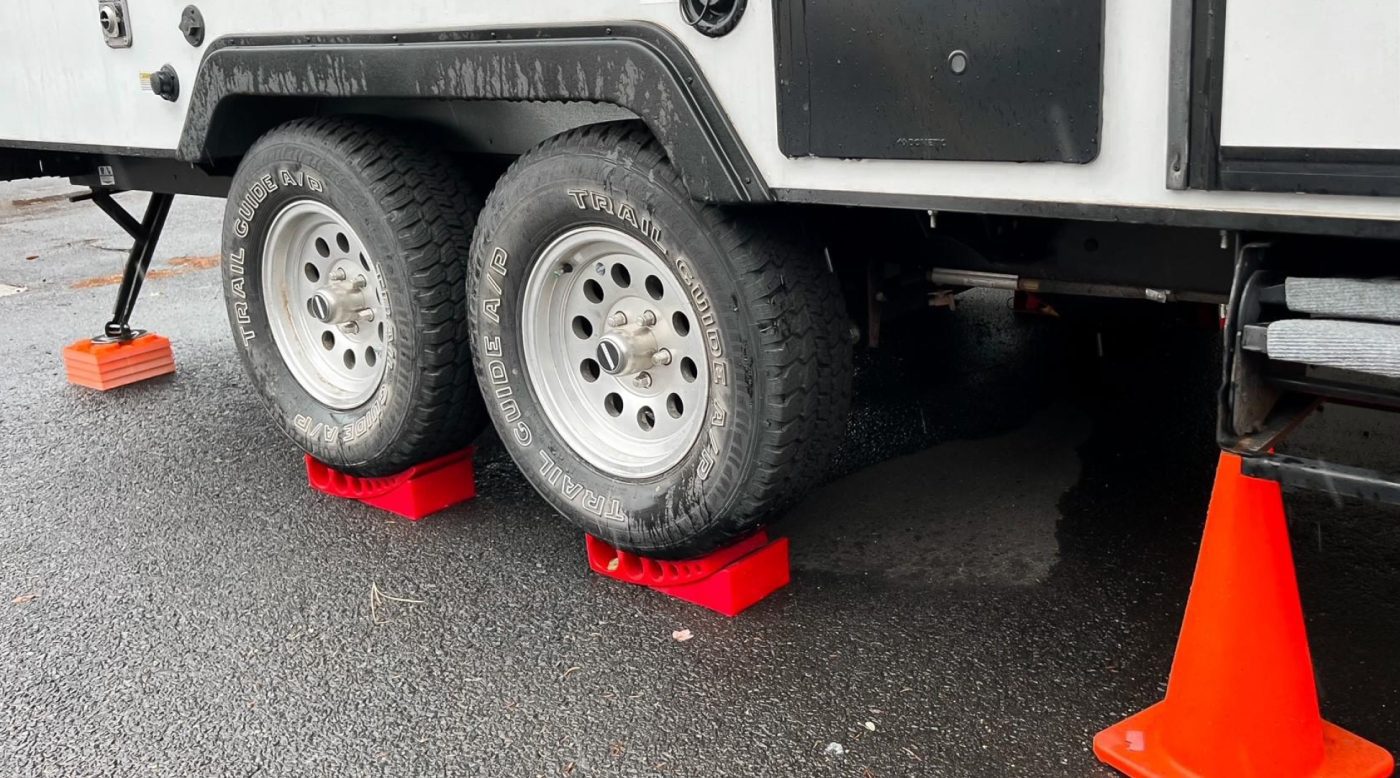
4.
Park on a level asphalt or cement pad
If you are storing your van for multiple months or even an entire season, you may want to go above and beyond to ensure your camper van’s safety. If possible, it’s recommended to park on not only a level surface, but something solid, like cement or asphalt. Some storage facilities only have dirt or gravel floors, even in covered storage areas. Ensuring your RV or camper van is parked on a solid surface will help reduce the chances of weather damage or pest infestation.
What If It’s Not Cold?
If you’re like many van dwellers and migrate to warmer weather in the winter months, you may not have to worry about completely winterizing your camper van if it won’t be in sub-freezing weather. This alleviates the need to add antifreeze to your water lines, but we still recommend all the other tips we shared.
Of course, if you’re only leaving your camper van for a few days, it’s probably not necessary to prep your van to the level we suggested. Water can be left in sealed tanks for up to two weeks before the tank should be flushed. Without the concern of freezing, leaving water in your tanks and lines for a few days will be just fine.
Stress-Free Camper Van Storage
By following these simple precautionary measures, you can store your camper outside in the winter and go home for the holidays stress-free, returning to a clean, functioning camper van. A properly winterized RV will give you the peace of mind to enjoy your holiday travels and not worry about your camper van being damaged while you’re away.
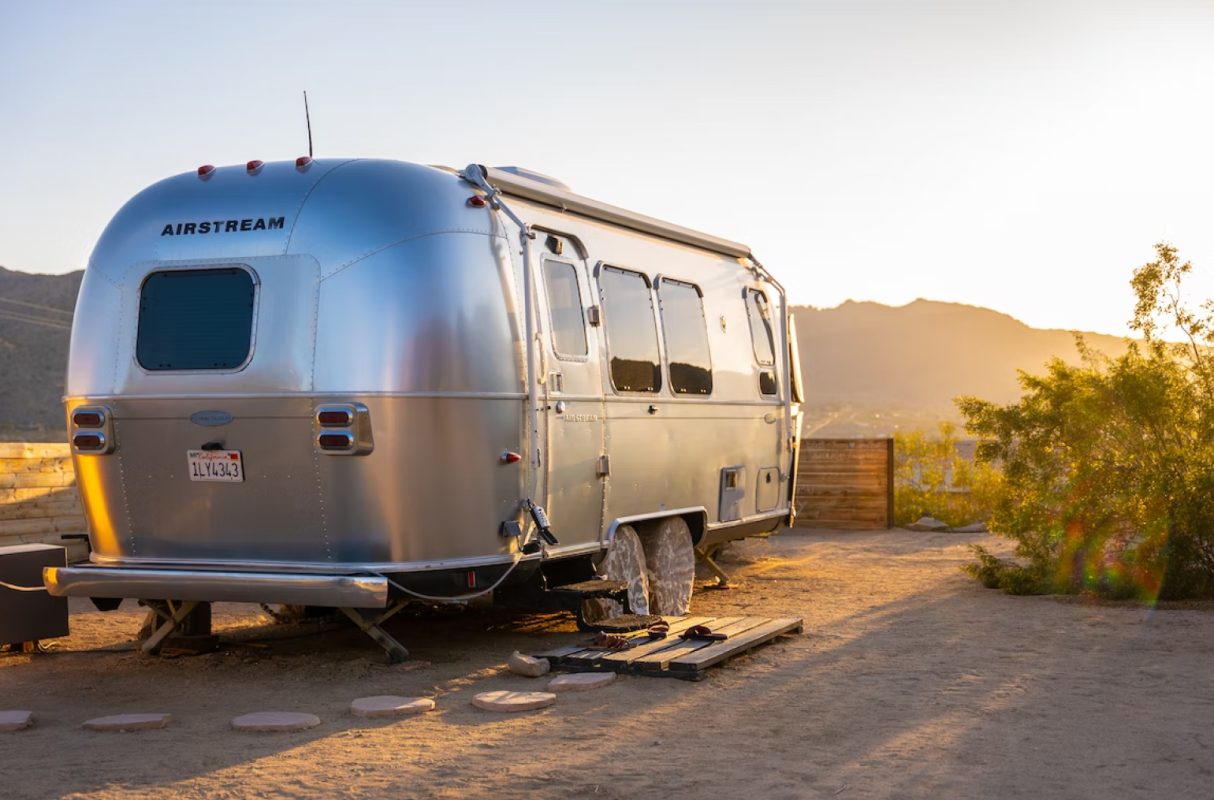
Camper parked in warm weather for winter




